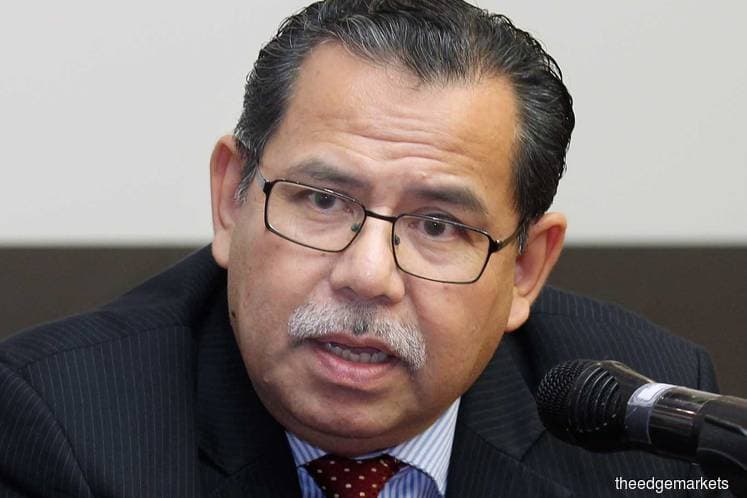
KUALA LUMPUR (Dec 12): The 19% year-on-year decline in Malaysia's long-term sovereign sukuk issuance to US$7.7 billion in the first eight months of 2017 is just a temporary "blip", and was due to the fact that there were not many major infrastructure projects financed by sukuk during the period.
International Centre for Education in Islamic Finance president and chief executive officer Prof Datuk Dr Azmi Omar said unlike Indonesia, which is fervently building roads, highways, ports and airports, Malaysia does not have many major infrastructure projects.
"Of course the Singapore-Kuala Lumpur High Speed Rail, Mass Rapid Transit (MRT) and the East Coast Rail Link (ECRL) are major infrastructure projects, but they are not sukuk-funded. In Indonesia, the government raises funds for projects of such scale via sukuk issuance," he said.
According to recent report by Moody's Investors Service, Malaysia saw a fall in sovereign sukuk issuance, although the country remains the largest Islamic issuer with an estimated 43% of total sovereign sukuk outstanding in 2016.
Indonesia, on the other hand, saw an annual sukuk y-o-y growth of 30% in 2016, from just under 10% in 2010.
Azmi, however, said the Malaysian government has made Islamic finance a core focus and it is in line with the 2050 National Transformation programme.
"Bank Negara Malaysia (BNM) and the Finance Ministry would continue to look at different ways of Islamic finance, (and) banking and sukuk are not the only things.
"We are talking about value-based intermediation (VBI), and incorporating financial technology (fintech) and expanding the halal economy to push Islamic finance further in Malaysia," he told a press conference at the third annual symposium on Islamic finance organised by World Bank and Islamic Research and Training Institute.
On the opinion that sukuks are usually short-termed, he said that is different in Malaysia, where Islamic bonds range between five and 25 years because of Malaysia's comprehensive and strong capital market on fund management.
"In Malaysia, the issue of short-term does not really apply but what we want to see is (more) quality assets, hence the need for sustainable development goals (SDG) as they correlate with Islamic finance.
"It is really looking at what is next after Islamic finance because SDGs relate to the value, and ethical principles. At the end of the day, we are concerned about whether the planet is sustainable (and) whether Islamic financing is sustainable.
"Of course in a conventional system, these may not be an issue but to Islamic finance, sustainable and ethical issues are inherent to finances," he added.
In his keynote speech at the event, Deputy Finance Minister I Datuk Wira Othman Aziz said institutional investors in Malaysia have also begun to prioritise societal impact of investments such as Khazanah Nasional Bhd, which has initiated Project Chronos to measure a company beyond its intrinsic value and whether the company is value-generating or destroying.
"SDGs are consistent with the intended outcome of shariah, which focuses on the enhancement of the society's wellbeing through the preservation of wealth, faith and intellect. To strengthen the capital market, several measures were introduced in Budget 2018, like tax exemptions that cover a broad range of activities, products and investors which would help promote a more active trading for exchange-traded funds and structured warrants," he said.
Othman added that for Malaysia to strengthen its lead as an Islamic finance hub and realise the SDGs, stakeholders must come together and strive to achieve the objectives.
"Through its policies, the government has provided the incentive structure for industry players to achieve these goals. Bureaucracy and red-tape are kept to a minimum. Industry players, on the other hand, are expected to work with full honesty without abusing the system in their favour," he said.